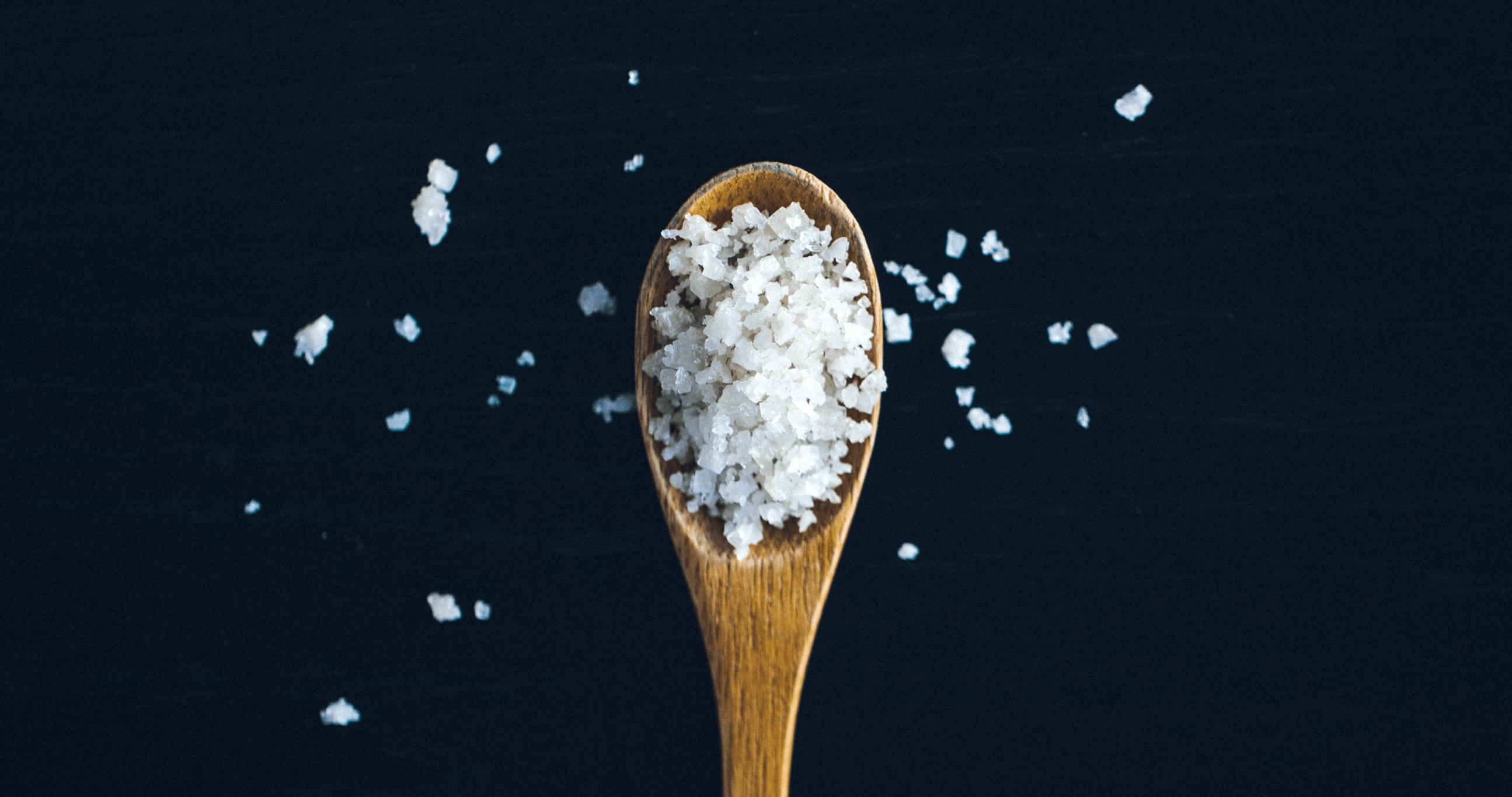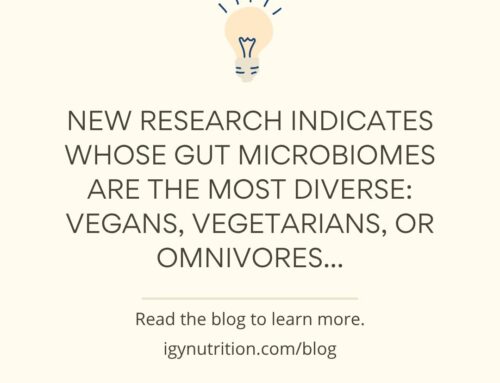In our last blog titled “Salt and Gut Health Part 1: About Salt,” we explained why salt is essential for whole-body health and digestion.
In short, salt is critical for the breakdown and absorption of food, motility, and microbiome health. But too much salt may result in too-high blood pressure and suppression of integral beneficial bacteria.
So how much salt should we consume for gut health, and does the source matter?
Recommended Daily Salt Intake
As we mentioned before, salt is critical, but too much of it may result in elevated blood pressure and suppression of valuable beneficial bacteria. So what’s the happy medium?
The average American consumes 3,400 mg of sodium per day (1). Want to guess whether that’s too high or too low?
Before we answer that, let’s get our bearings – how much is a milligram of sodium anyway? One teaspoon of salt contains about 2,300 mg of sodium – which means one tablespoon contains about 7,000 mg of sodium.
A tablespoon might not sound like much, but if you’ve cooked before, you’d know that one whole tablespoon of salt would result in a very salty meal if you’ve cooked before.
So the average American consumes about half of a tablespoon of salt (3,400 mg) per day. Is that too much, too little, or just right?
It turns out that 3,400 mg is too much. Just half of a tablespoon of salt per day is correlated with elevated blood pressure, which can lead to organ damage (especially heart issues) down the line (1).
The FDA and the American Heart Association recommend that Americans consume between 1,500 and 2,300 mg of salt per day for a healthy body (2). That’s equal to about a teaspoon of salt per day.
However, salt needs vary depending on health conditions, size, gender, weight, and exercise and activity levels (2).
For example, if you struggle with constipation, you may want to consider consuming 2,300 mg of salt per day rather than 1,500 mg to encourage motility. On the other hand, consuming 1,500 mg instead would be ideal for high blood pressure.
We recommend working with a registered dietitian to find your individual salt needs.
The Source of Salt Matters
Something to consider is the source of your daily salt intake.
Many processed foods, restaurant dishes, and frozen meals are very high in salt, and typically these types of meals come with added consequences. Check out our other blogs to learn why processed foods and foods high in additives threaten gut health.
If you’re eating a primarily gut-healthy diet but sprinkling a little too much salt on your food, your gut health is probably doing just fine (as long as you’re not consuming several tablespoons per day).
The dangers associated with high-sodium foods may be attributed to the content of processed foods rather than salt alone.
Getting Enough Salt
Here’s an important note for those who like to “eat clean:” you might not be getting enough salt!
Let’s look at an example. Say you have a smoothie for breakfast, a salmon salad with quinoa for lunch, and beans, rice, and chicken with some veggies for dinner.
A smoothie containing one banana, one cup of frozen strawberries, one scoop of protein powder, one tablespoon of almond butter, and one cup of oat milk would come out to 385 mg of sodium. Okay, let’s move on to lunch.
A salmon salad containing 4 oz of salmon cooked in one tbsp of olive oil on a bed of one cup of steamed quinoa, one cup of mixed greens, and one handful of sunflower seeds would come out to about 100 mg of sodium. We’re looking pretty short on salt at 485 mg so far… let’s look at dinner.
A burrito bowl containing 1 cup brown rice, 1 cup pinto beans, 4 oz chicken breast, one tomato, one avocado, and some onion puts us at 1000 mg of sodium for the whole day!
See how easy it is to come up short on sodium when following a “clean” diet? The good news is it’s an easy fix – just sprinkle a little salt on top of your food. Get creative with healthy sauces like salsa to bump up your sodium intake.
Tag us in photos of your digestive wellness journey on Instagram @igynutrition. Good luck!
References
- https://www.cdc.gov/salt/food.htm#:~:text=Americans%20consume%20an%20average%20of,mg)%20of%20sodium%20each%20day.&text=But%20the%202020%2D2025%20Dietary,of%20a%20healthy%20eating%20pattern.
- https://www.heart.org/en/health-topics/high-blood-pressure/changes-you-can-make-to-manage-high-blood-pressure/shaking-the-salt-habit-to-lower-high-blood-pressure#:~:text=The%20American%20Heart%20Association%20recommends,those%20with%20high%20blood%20pressure.




